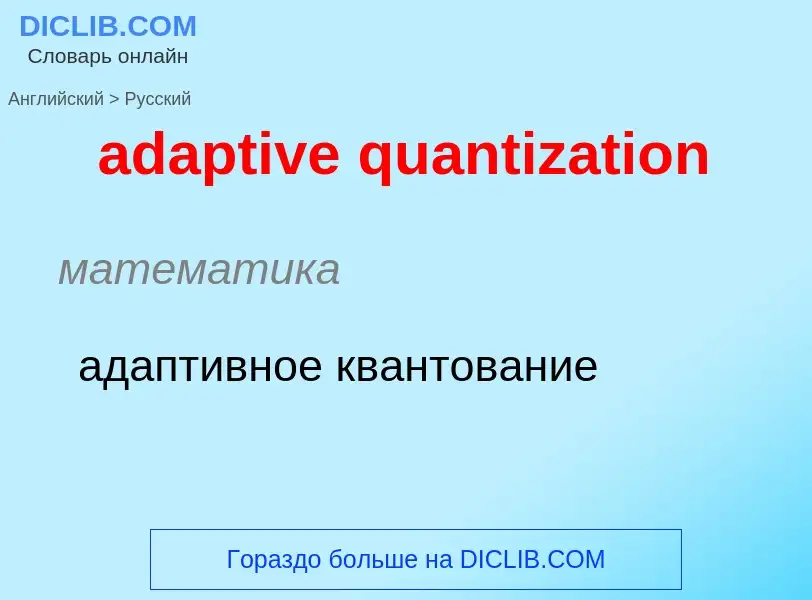Traduction et analyse de mots par intelligence artificielle ChatGPT
Sur cette page, vous pouvez obtenir une analyse détaillée d'un mot ou d'une phrase, réalisée à l'aide de la meilleure technologie d'intelligence artificielle à ce jour:
- comment le mot est utilisé
- fréquence d'utilisation
- il est utilisé plus souvent dans le discours oral ou écrit
- options de traduction de mots
- exemples d'utilisation (plusieurs phrases avec traduction)
- étymologie
adaptive quantization - traduction vers russe
математика
адаптивное квантование
общая лексика
Adaptive Differential Pulse Code Modulation
адаптивная дифференциальная импульсно-кодовая модуляция, АДИКМ
стандарт ITU-TS на способы кодирования и сжатия цифровых звуковых фрагментов. Записывается разница между текущим и предыдущим звучанием, а также динамически настраивается шкала кодирования для малых и больших изменений звучания. Позволяет передавать оцифрованную речь на скорости 32 Кбит/с. Используется как метод хранения на дисках CD-XA и CD-I, а также для кодирования и декодирования в [беспроводной телефонной] связи
Wikipédia

Quantization, in mathematics and digital signal processing, is the process of mapping input values from a large set (often a continuous set) to output values in a (countable) smaller set, often with a finite number of elements. Rounding and truncation are typical examples of quantization processes. Quantization is involved to some degree in nearly all digital signal processing, as the process of representing a signal in digital form ordinarily involves rounding. Quantization also forms the core of essentially all lossy compression algorithms.
The difference between an input value and its quantized value (such as round-off error) is referred to as quantization error. A device or algorithmic function that performs quantization is called a quantizer. An analog-to-digital converter is an example of a quantizer.





